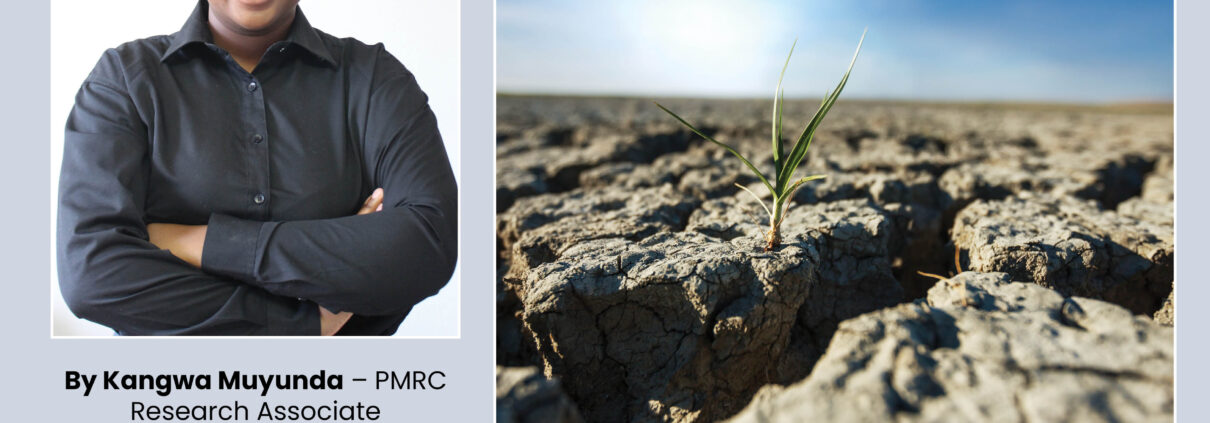Countries around the world have come together to discuss tackling climate change at the 28th Conference of the Parties to the United Nations Framework Convention on Climate Change commonly known as COP28 from the 30th November to 12th December 2023. At COP 28 countries will be negotiating global goals for addressing climate change, present their individual countries’ plans for contributing to those goals, and report on their progress. One of the key topics of discussion at this year’s COP is fast-tracking a just, orderly and equitable energy transition. The energy transition concerns the shift from fossil fuels to renewable energy sources in an effort to reduce carbon emissions.
Zambia’s installed generation capacity is 3356.6 MW; this comprises 83 percent of hydro, 9 percent of coal, 5 percent of heavy fuel oil and 3 percent solar PV. The energy transition for Zambia involves shifting focus towards renewable energy sources such as solar, wind and geothermal and less dependence on fossil fuels. This move to transition away from fossil fuels which account for 14% of the country’s energy mix will be instrumental in reducing Greenhouse Gases. According to the United Nations, Fossil fuels are the largest contributor to global climate change, accounting for over 75 percent of global greenhouse gas emissions. The Government intends to reduce greenhouse gas emissions by at least 47 percent by 2030.
The energy transition will require accelerating renewable energy sources in the country. Only 31 percent of Zambians have access to electricity; with 67 percent of the urban population and only 4 percent of the rural population having access to power. There is need for the country to scale up its efforts to provide energy from sustainable and reliable sources. The country has relied so much on hydro power which has been affected by climate change creating energy shortages and thereby there is an urgent need to increase other renewable energy sources. Zambia has the potential to generate 2,300 MW of solar and 3,000 MW of wind, only 76 MW of solar has been installed and no wind power to date.[1]
According to the Ministry of Energy, policy and regulatory shortfalls, and financial and institutional barriers have affected the exploitation of Renewable Energy in the country. In addition, infrastructure remains an obstacle to Zambia’s electricity development, particularly in rural areas. The country’s energy infrastructure needs to be upgraded to support the integration of renewable energy technologies. While Government has made significant strides in promoting the development of renewable energies through policy and regulatory reforms there is still significant work that needs to be done for the country to attract meaningful investment in the sector.
The energy transition will mean a greater demand for Zambia’s minerals as the country is endowed with minerals critical to making the transition a reality. Minerals such as copper, lithium, nickel, and cobalt are essential components in clean energy technologies such as wind turbines, electric vehicles and solar cells. Due to the rising demand for these minerals, it is likely that there will be a boom in the prices of these minerals. Zambia stands to benefit from the anticipated price boom and increase revenue generation for the country. As Zambia seeks to benefit from the demand for transition metals, there is need to ensure that the mining sector is well governed as the mining projects increase. The extraction of these minerals should bring benefits to the citizens where they are mined while also safeguarding the environment. The sector should be transparent, socially responsible, and inclusive and contribute to sustainable economic development.
The energy transition must be “just” meaning that all groups in society should equally benefit from the transition and it should not come at the expense of certain groups. A key way in which energy justice can be fostered is through participation. The Government can support an inclusive, bottom-up engagement, where policy-makers prioritize the feedback from local communities on the suitability of energy project developments. In addition, investment in skills is key to realising the clean energy transition. A major scaling-up of training is required to develop a skilled workforce for the renewable energy and energy efficiency sectors. This will necessitate the development of completely new programmes of education, certification and vocational training.
The COP 28 reminds us that there is urgent need to accelerate the energy transition in the country and join the rest of the world in global climate action. Achieving this change will require support from all – Government, businesses and the public. The transition would ensure significant benefits to the environment, the economy and quality of life for people around the globe and for generations to come.
[1] https://www.theafricareport.com/278535/zambia-will-uae-cooperation-revive-solar-dream-after-world-bank-china-disappointments/




